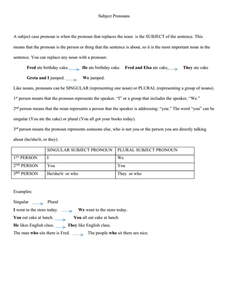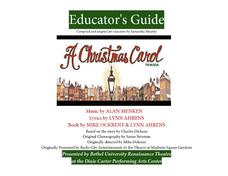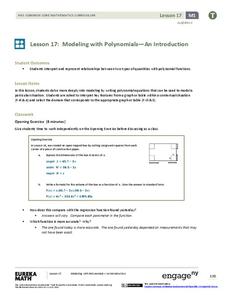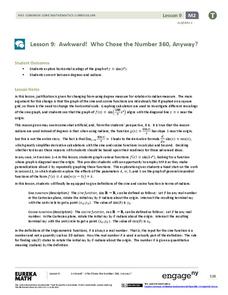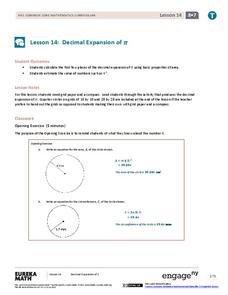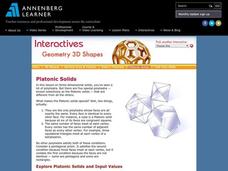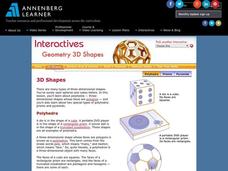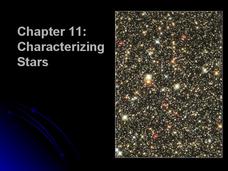Cornell University
Garden Math
Young scientists must put their math caps on and figure out what fraction of each flower is in a raised flower bed. They must problem solve to simplify the fractions, and then graph the amount of flowers that are in different flower beds.
University of Utah
Geometry: Angles, Triangles, and Distance
The Pythagorean Theorem is a staple of middle school geometry. Scholars first investigate angle relationships, both in triangles and in parallel lines with a transversal, before proving and applying the Pythagorean Theorem.
Balanced Assessment
County Concerns
Apply area concepts to help farmers and settle county disputes. Scholars use a given diagram and information about an insecticide spraying campaign to determine the monetary benefit to farmers. They then decide which of two counties has...
Curated OER
House Project
Make young mathematicians' dreams a reality with this fun drawing project. Given the task of designing their dream home, students create drawings and physical models that demonstrate their understanding of proportion and scale.
Willow Tree
Order of Operations
It's the classic please excuse my dear aunt sally strategy to remembering the order of operations. Young mathematicians practice to develop an understanding of the order of operations. Examples and practice problems include...
NOAA
Make Your Own Volcano!
Make a volcano erupt in your own classroom! Young scientists use household and craft materials to model and simulate the eruption of a volcano.
Math Sphere
Co-Ordinates
Challenge young mathematicians' understanding of the coordinate plane with this series of skills practice worksheets. Offering 10 different exercises that involve identifying ordered pairs,...
Ohio National Guard
Emotional Intelligence
Provide teenagers with the social skills they need to live happy lives with this collection of worksheets and activities. Covering a variety of topics from self-awareness and assertiveness, to stress management and problem solving, this...
Santa Barbara City College
How to Make a Multiplication Table
Teach children how to make a multiplication table, and they'll be multiplying for life. Following this series of steps, young mathematicians learn to use patterns and the relationships between numbers to create...
Math Wire
Gingerbread Man Combinations
Gingerbread men are just like us—they're unique! Discover how many combinations are possible when constructing a gingerbread man with several choices for shapes and colors of eyes, noses, and buttons.
Savvas Learning
Pronouns
As part of their English grammar study, language learners engage in the games, exercises, and activities found in a 13-page packet that focuses on pronouns.
Horticultural Society of New York
Dress Up Your Salad
Salad dressings use a variety of different ingredients, but it's important to have a healthy balance of greens to create a delicious mix. Young chefs examine five types of herbs including chives, basil, dill, parsley, and thyme to...
Curated OER
Educator's Guide: A Christmas Carol
Planning on using Charles Dickens' A Christmas Carol this year? Then give yourself a gift and download this colorful guide thats packed with goodies. Kids, as well as the ghosts of Christmas past, present, and future are sure to...
EngageNY
The Definition of Sine, Cosine, and Tangent
Introduce your classes to a new world of mathematics. Pupils learn to call trigonometric ratios by their given names: sine, cosine, and tangent. They find ratios and use known ratios to discover missing sides of similar...
Pearson
Articles: Indefinite
When do you use a or an before a noun? What about the? Learn about indefinite and definite articles with a brief grammar presentation, which focuses on using context clues to determine proper article usage.
EngageNY
Dividing by (x – a) and (x + a)
Patterns in math emerge from seemingly random places. Learners explore the patterns for factoring the sum and differences of perfect roots. Analyzing these patterns helps young mathematicians develop the polynomial identities.
EngageNY
Modeling with Polynomials—An Introduction (part 2)
Linear, quadratic, and now cubic functions can model real-life patterns. High schoolers create cubic regression equations to model different scenarios. They then use the regression equations to make predictions.
EngageNY
Awkward! Who Chose the Number 360, Anyway?
Don't give your classes the third degree. Use radians instead! While working with degrees, learners find that they are not efficient and explore radians as an alternative. They convert between the two measures and use radians with the...
Virginia Department of Education
Predator-Prey Simulation
Do your pupils have the misconception that environmental predators are "bad" and harm smaller creatures? The simulation explains, in detail, the important role predators play in maintaining a stable ecosystem. Through web-based research,...
EngageNY
Decimal Expansion of Pi
Develop a better understanding of the value of pi. Learners explore the area of a circle using estimation and graph paper. While continuing to estimate the area of the circle using smaller and smaller grids, the number pi emerges.
Annenberg Foundation
Geometry 3D Shapes: Platonic Solids
From polyhedrons to platonic solids, here is a lesson that will have your classes talking! As an introduction to platonic solids, scholars cut and fold nets to create the three-dimensional solids. They use an interactive component to...
Annenberg Foundation
Geometry 3D Shapes: 3D Shapes
Explore vocabulary related to three-dimensional shapes. An instructional website describes the characteristics of different geometric solids. Learners can use an interactive component to view nets, faces, vertices, and edges of common...
101 Questions
Dandy Candies
Package design is an economic necessity. Young scholars assume the role in an interesting inquiry-based lesson. Given 24 cubic shaped candies to package, they must determine the arrangement that uses the least amount of cardboard to...
Glynn County School System
Characterizing Stars
Are brighter stars actually brighter? Turns out they are probably just closer! A presentation compares features of stars to our favorite star, the sun. In addition, solar lovers learn to classify stars based on their masses,...










